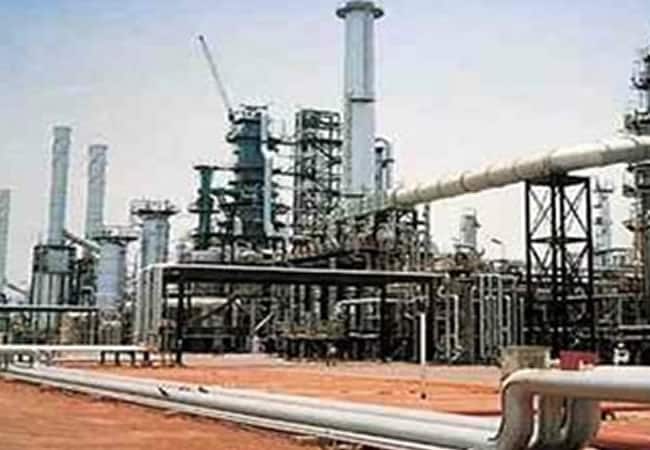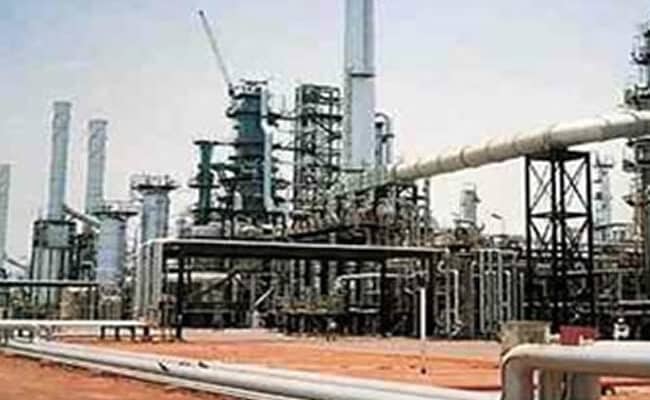
Nigeria’s oil sector has reached a significant milestone as the Warri Refining and Petrochemical Company Limited (WRPC) resumed operations, signaling a major step toward reducing the nation’s reliance on expensive imported petroleum products. The Nigerian National Petroleum Company Limited (NNPCL) confirmed the reopening of the refinery on Monday, following the restart of the Port Harcourt Refinery in November. The WRPC, with a capacity of 125,000 barrels per day (bpd), is currently operating at 60% capacity and is expected to ramp up production in the coming months.
This development comes as part of Nigeria’s broader strategy to boost local refining capacity, reduce fuel imports, and alleviate pressure on the country’s foreign exchange reserves. Experts and oil marketers have highlighted that the increased domestic refining capacity will intensify competition in the downstream oil sector, which is anticipated to drive down the prices of refined petroleum products.
Competition to Drive Prices Down
The National Operations Controller of the Independent Petroleum Marketers Association of Nigeria (IPMAN), Mustapha Zarma, stated that the resumption of the Warri refinery will significantly impact the downstream sector. “Once the facility starts producing in large volumes, we expect a further reduction in fuel prices. The competition among local refiners will intensify, and at the end of the day, market forces will drive prices lower,” Zarma explained.
With the additional production from the Warri refinery, Nigeria’s domestic oil sector will be better positioned to meet local demand, reducing the need for fuel imports and cutting the country’s reliance on foreign exchange to procure refined products. The availability of locally produced fuel is also expected to create a more competitive market, as Nigerian refiners compete to supply various grades of petroleum products to meet consumer demand.
The Chief Executive Officer of the Nigerian Midstream and Downstream Petroleum Regulatory Authority (NMDPRA), Farouk Ahmed, echoed these sentiments, adding that the local refining capacity would help to curb the fluctuations in fuel prices caused by the volatility of the international market. “The restart of the Warri refinery, along with other refineries, will not only drive prices down but will also encourage local investments in modular refineries, which will further benefit Nigerians,” Ahmed said.
Boost to Energy Security and Economic Growth
The operationalization of the WRPC is part of Nigeria’s comprehensive effort to ensure energy security and reduce its dependence on fuel imports. As one of the largest oil producers in Africa, Nigeria has long struggled with inadequate refining capacity, forcing the country to import a large portion of its fuel. The rehabilitation of the WRPC, which had been dormant for several years, alongside the Port Harcourt refinery’s restart, is seen as a significant step toward self-sufficiency in refined petroleum products.
The NNPCL has committed to reviving all four of Nigeria’s state-owned refineries, with the Warri refinery being the second to come online this year. According to Mele Kyari, the Group Chief Executive Officer of NNPCL, the focus of the WRPC will be on producing key products such as automotive gas oil (diesel), kerosene, and naphtha. Kyari added that the refinery’s second stage will include the production of petrol, further improving local supply. Additionally, the increased refining capacity will allow Nigeria to begin exporting refined products, bringing in foreign currency and reducing the strain on the nation’s foreign exchange reserves.
The WRPC, located in Ekpan, Warri, Delta State, was first commissioned in 1978. Over the years, the refinery has faced several challenges, including poor maintenance and underinvestment. In 2021, a major rehabilitation project began, with an estimated cost of $898 million, to restore the refinery’s operational capacity. The project is part of a larger strategy by the NNPCL to increase local refining capacity and reduce the country’s dependence on fuel imports.
Government and Presidential Support
President Bola Tinubu has been a vocal advocate for the revitalization of Nigeria’s oil refineries, viewing the restart of the Warri refinery as an important achievement for his administration. In a statement issued on Monday, President Tinubu expressed his joy over the milestone, noting that it was part of his broader plan to make Nigeria a hub for oil refining in Africa. “The restart of the Warri refinery is a remarkable achievement that will help strengthen the hope and confidence of Nigerians in our future,” President Tinubu said.
The Nigerian leader commended the efforts of the NNPCL and its management, led by Mele Kyari, for their determination and commitment to restoring the country’s refineries. He also noted that the operationalization of the Warri refinery would lead to a more stable and competitive fuel market in the country, benefiting both consumers and marketers. “This is a significant milestone for Nigeria, and I am pleased that the NNPCL is working diligently to restore all four of our refineries to full working capacity,” President Tinubu added.
The President also emphasized the importance of continuing the rehabilitation work on the Kaduna Refinery and the second Port Harcourt refinery, which would further consolidate Nigeria’s position as a leading energy provider in Africa. The Kaduna refinery, which is still undergoing repairs, is expected to add another 110,000 bpd to Nigeria’s refining capacity once it is fully operational.
Economic Impact and Local Benefits
The resumption of the Warri refinery is expected to have a positive impact on Nigeria’s economy, with reduced reliance on imported fuel and foreign exchange. Mohammed Shuaibu, Secretary of IPMAN Abuja-Suleja, highlighted that the reduction in fuel importation would help to stabilize the naira and improve the country’s foreign exchange reserves. “With the Warri refinery now operational, the demand for dollars to import fuel will continue to decrease, positively impacting our foreign exchange reserves,” Shuaibu said.
Additionally, the increased domestic production of petroleum products is expected to reduce the price of fuel at the pumps, benefiting consumers across the country. The government’s push to increase local refining capacity is also expected to attract further investments in the oil sector, including modular refineries, which will contribute to greater energy security and economic growth.
Looking Forward
With the WRPC now operational and other refineries expected to follow suit, Nigeria is on track to becoming more self-sufficient in its petroleum needs. The revival of these refineries offers a long-term solution to the country’s fuel supply issues and strengthens the broader economy. As President Tinubu’s administration continues to prioritize energy security and economic development, the reactivation of the Warri refinery stands as a testament to the country’s potential to harness its vast oil resources for the benefit of its people.
In conclusion, the restart of the Warri refinery is a pivotal moment for Nigeria’s oil sector. With more refineries expected to come online in the near future, the country is set to reduce its dependence on imported fuel, lower prices for consumers, and enhance its position in the global energy market.

Comments